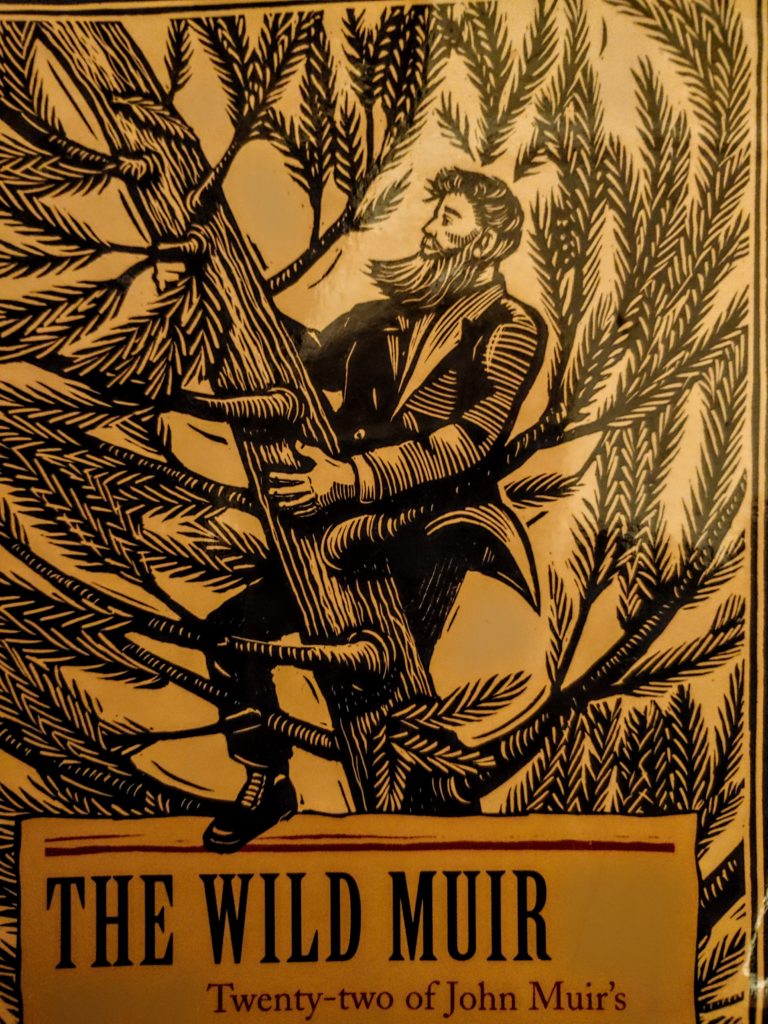by Elsa Johnson
….As Terry Pratchett has someone say, at some point, in nearly every one of his outrageously satirical, fantastical, ridiculous, compassionate, and funny novels. And we do; we surely do, I think, nearly every day, as I watch the foxes now in control of the chicken coop, the wolves now ‘guarding’ the herd, anticipatory saliva dripping from their ravening teeth.
It is not a new fight.
I am reminded of this by an essay/book review in the New York Review of Books: My Land, Your Land, by Bill McKibben (January 16th issue # LXVII, number 1). The article is ostensibly a review of two books – John Taliaferro’s Grinnell: America’s Environmental Pioneer and His Restless Drive to Save the West; and John Clayton’s Natural Rivals: John Muir, Gifford Pinchot, and the Creation of America’s Public Lands. But as usual in the NYRB, the review stands by itself as an essay with an independent internal point of view that speaks in its own right, the subject of which is precisely this moment in time where the balance of the scale has tipped heavily away from the long term appreciation and preservation of public lands as treasured entities with their own intrinsic existential value, toward the valuing of public lands for their long term resource development potential by private interests, and their short term exploitation potential, both to be achieved by deregulation and privatization. This, of course, will take them, forever, out of the public trust.
The Great Dismantling, it is called.
In this telling Grinnell and Muir are the singers/story tellers, the lyrical archdruids of saving-nature, while Gifford Pinchot stands on the other side, of managed finite resources and extraction. But as McKibben points out, before there can be dispute over how to use public lands, there has to be public lands, and all these men played a role in convincing Congress, making that happen, and these books that he is reviewing are that story. But as public land accumulated – it eventually came to account for about 25% of our land — these differences of ‘emphasis’ became clearer. While the most scenic, best loved (and lucky) places became our treasured national parks and wildernesses, McKibben tells us, “the great bulk of the land was turned over to the Forest Service and The Bureau of Land Management, ….which tended to be captured ….by the industries (mining, grazing, logging) …..And even that did not go too badly until “this current regime (which has) given the fossil fuel industry carte blanche on our public lands …. at precisely the wrong time.”
Do I need to tell you McKibben favors Democratic candidates – most of whom favor a strong emphasis on protection of public lands? We need, says McKibben a renaissance of the spirit of the early pioneers; “their combination of idealism and realism delivered us a great gift.” …a gift that is being taken away…
He’s pretty sure where not to look for that.
A few after-words from me.
Grinnell spent much of his life defending both wildlife and Native Americans. He founded the Audubon Society, and played an important role in helping to protect Glacier National Park, where a mountain and its glacier are named after him (and which I hiked up to the edge of, the summer I was 18 years old, in a pair of no-sole soft leather moccasins, which, were I to try to do today, would cripple me for the rest of my life).
Muir was something of a wild-man and a euphoric writer of wilderness. Read his A Thousand Mile Walk to the Gulf; or Wilderness Essays, or the collection called The Wild Muir, with its beautiful wood block illustrations. The man was driven, fearless, and riveting. In The Wild Muir I am particularly fond of one of the two pieces not written by Muir but about him. It is titled The Rescue at Glenora Peak and much of it can be found at https://books.google.com The Wild Muir : Twenty Two of John Muir’s Greatest Adventures; The Rescue at Glenora Peak, page 145. Read this hair-raising rescue on line, and enjoy Fiona King’s art, one example of which we include here.

But most of all this MYRB review/essay reminded me of how much good nature writing I have read and loved over the years, (though not so much recently — who has the mind for it amid all this craziness?) – Edward Abbey’s Desert Solitaire; John McPhee’s Coming Into the Country; Annals of the Former World; Encounters with the Archdruid…. And I think, in these a-little-too-interesting times, in these darkest days of winter-but-not-very-winter (mixed thanks to global warming) it’s good to go back to and revisit the absorbing power of alchemical books.
I invite you to read.
